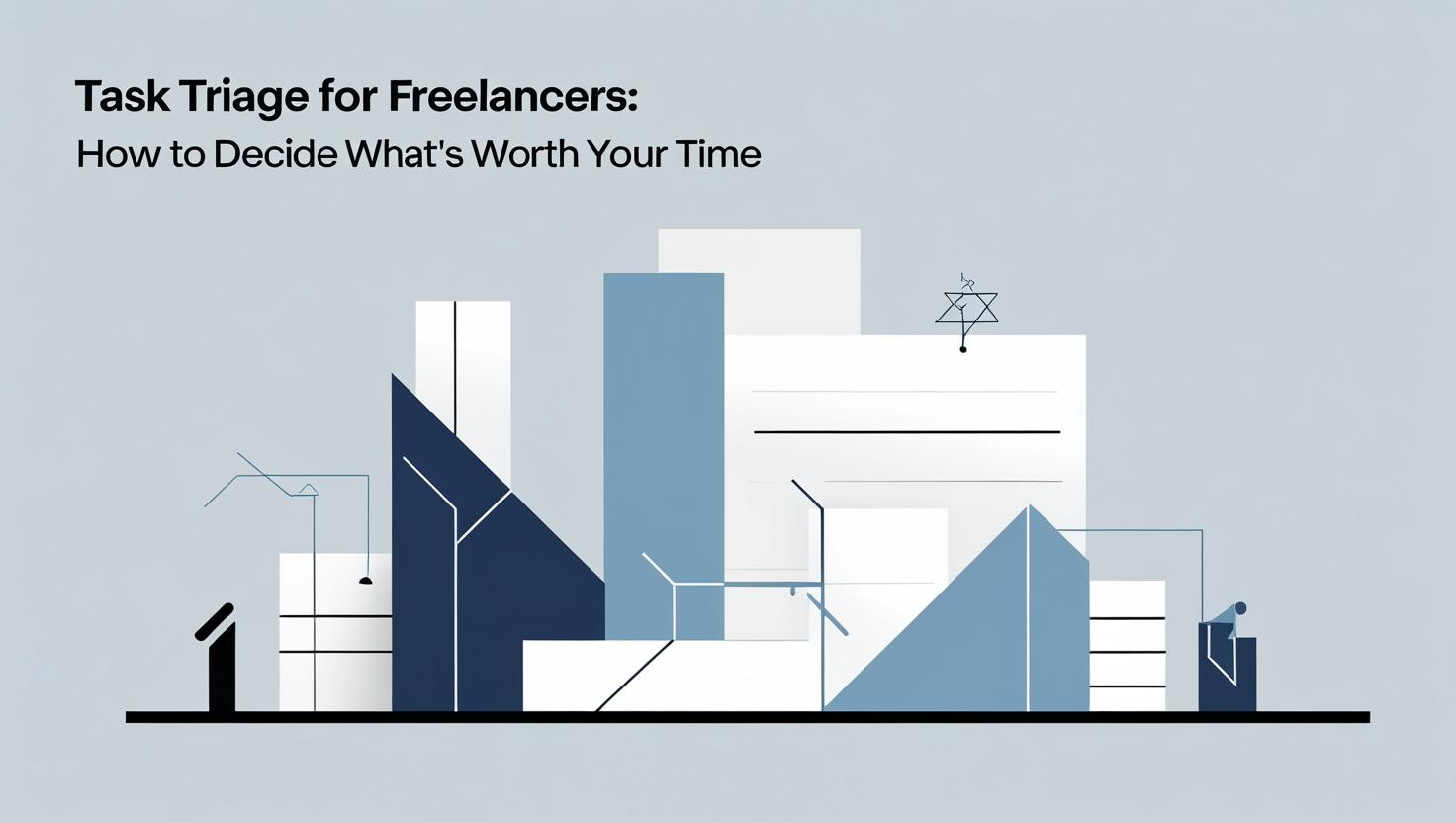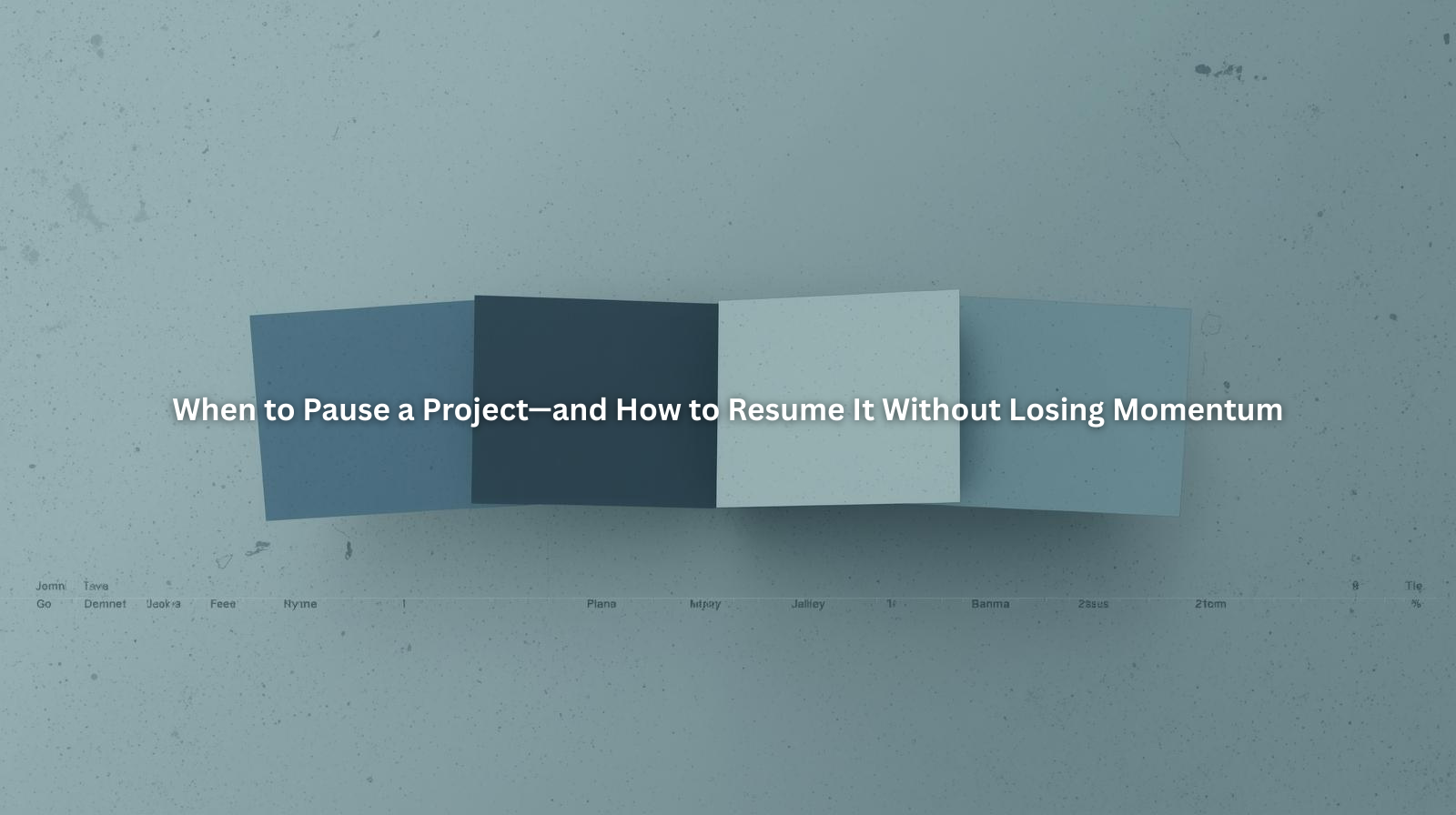Task Triage for Freelancers: How to Decide What’s Worth Your Time

Table of Contents
- Why Freelancers Feel Like Everything Is Important
- What Is Task Triage (And Why You Need It)?
- The Cost of “Doing It All” Without a Filter
- A Simple Task Triage Framework That Works
- What to Do With Low-Priority (But Still Valuable) Tasks
- How ProjectBook.co Helps You Triage Your Work Without Stress
- FAQ: Prioritizing Tasks as a Freelancer
1. Why Freelancers Feel Like Everything Is Important
Freelancing often means you’re the strategist, executor, client communicator, admin assistant, and project manager—every single day. No wonder your task list grows faster than you can cross things off.
When you’re managing multiple clients, tracking your own marketing, trying to improve your systems, and still squeezing in a little rest? Everything starts to feel urgent. Everything starts to feel important. And deciding what to work on next turns into a daily anxiety spiral.
You’re not alone. This is where task triage comes in—so you can spend your time on what actually matters, and stop drowning in what doesn’t.

2. What Is Task Triage (And Why You Need It)?
Triage is a term borrowed from emergency medicine. It’s the process of quickly assessing which patients need care most urgently, and which ones can wait.
In freelancing, task triage is the same idea. It’s a way of looking at your task list with fresh eyes and asking:
- What’s critical?
- What’s just noise?
- What’s important, but not urgent?
- What can I drop—or delegate?
Instead of treating every task like it carries equal weight, triage helps you separate pressure from priority.
Because let’s be real—not every task deserves a slice of your best energy.
3. The Cost of “Doing It All” Without a Filter
When you don’t triage, you end up:
- Reacting instead of leading
- Spending an hour formatting a doc instead of delivering the draft
- Saying yes to urgent requests that aren’t aligned with your goals
- Working longer hours but still feeling unaccomplished
- Burning out on admin while your creative work sits untouched
Without a clear filter, it’s easy to prioritize what feels easy, fast, or immediate—but that’s rarely the work that moves the needle.
You don’t need to do more. You need to choose better.
4. A Simple Task Triage Framework That Works
Here’s a quick method you can use to triage your freelance task list—no spreadsheets required.
1. Ask: Is it Time-Sensitive, High-Impact, or Client-Facing?
These are your high-priority tasks. They affect delivery, deadlines, or how you’re perceived. Do these first.
Examples:
- A deliverable due tomorrow
- An overdue client reply
- A task that directly impacts income
2. Ask: Does this move my business forward long-term?
This includes marketing, planning, system upgrades, and skill-building. These are important, but not urgent. Schedule them—don’t skip them.
Examples:
- Writing a blog post
- Updating your proposal template
- Learning a new tool you’ve been avoiding
3. Ask: Is this a “nice to do” or a distraction?
These tasks often disguise themselves as productive, but don’t create value now. Archive them, or park them in your backlog.
Examples:
- Organizing your file folders again
- Tweaking your logo
- Trying out a new app that doesn’t solve a real problem
Use these three filters daily or weekly—and suddenly your task list becomes a roadmap, not a minefield.
5. What to Do With Low-Priority (But Still Valuable) Tasks
Here’s the thing: not every “low-priority” task is a bad one. Some are just not right for right now.
That’s where your personal backlog comes in (see our article on that!). Move those ideas, to-dos, and “someday” items to a calm place where they won’t distract you—but won’t be forgotten either.
Once a week or once a month, revisit that list. You might be surprised what now feels doable—or irrelevant.
This isn’t about abandoning good ideas. It’s about honoring your time, energy, and mental clarity in the moment.
6. How ProjectBook.co Helps You Triage Your Work Without Stress
ProjectBook is built to help solo business owners see their work clearly—and act with purpose.
Inside ProjectBook, you can:
- Tag tasks by priority, type, or energy level (e.g., “Urgent,” “Admin,” “Deep Work”)
- Sort your to-dos by project, client, or deadline
- Flag blocked tasks so you’re not wasting energy on what can’t move yet
- View your day’s tasks across all projects from one screen
- Move low-priority ideas to your backlog with one click
Instead of asking “What should I work on today?”, your dashboard shows you what’s most important—so you can work smarter, not just faster.
7. FAQ: Prioritizing Tasks as a Freelancer
What if everything on my list feels important?
Start by asking: what has a consequence if I don’t do it today? That’s your priority. The rest may feel urgent—but often, it’s just loud.
How do I stay focused when unexpected requests come in?
Use a triage checkpoint. Ask: Is this urgent and important? Or can it wait until I’ve finished my top task?
Should I triage tasks daily or weekly?
Both! A weekly planning session sets your direction. A daily triage check-in helps adjust for new inputs or shifting deadlines.
Can I use ProjectBook to mark task priorities?
Yes. You can assign tags like “High Impact” or “Low Lift,” filter by status, or set due dates—and see everything across all your projects.
Final Word
You don’t need a longer to-do list. You need a smarter one.
When you learn to triage your tasks with clarity and self-trust, you take back your time, protect your energy, and stay focused on the work that matters most.
You can’t do everything. And you don’t need to.
You just need to know what’s worth doing right now—and trust yourself enough to do it.
ProjectBook.co gives you the structure to filter, sort, and prioritize your work—so every task supports your goals, your clients, and your peace of mind.


